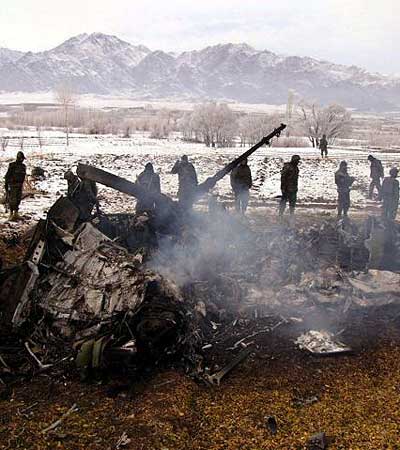Brown signals strategic shift as Taliban stronghold falls

The Taliban stronghold of Musa Qala fell to Afghan forces last night, heralding a change of British strategy and an attempt to win the "hearts and minds" of the Afghan people in the fight against insurgents.
Following four days of fierce clashes that left one British soldier dead, Taliban fighters in Musa Qala were said to have "melted away" into the mountains of northern Helmand, allowing Afghan army troops to re-enter the town without meeting resistance.
As the assault was taking place, Gordon Brown visited troops at Camp Bastion, the largest British base in the restive southern province. The Prime Minister, speaking later in Kabul alongside the Afghan President, Hamid Karzai, said the offensive was an example of how Afghan and coalition forces could "make a difference" by working togther. He added: "There is no doubt the action in Musa Qala will make a huge difference and, when that action is completed, it will be followed by economic and social development."
In the Commons tomorrow, Mr Brown will announce a major policy shift which places greater emphasis on securing the support of the Afghan people with a three-pronged approach based on security, economic development and political cooperation with tribal leaders.
Although Musa Qala has only limited value as a military target, it is on the road to the Kajaki Dam a hydroelectric plant which has come under frequent insurgent attack and which could make a difference to Afghan lives once it is rebuilt. Since taking over as Prime Minister, Mr Brown has highlighted the importance of economic reconstruction in support of military action.
He said yesterday: "We will continue to give support, not only in terms of our forces here, who are doing a brilliant job in support of democracy, but we will also continue to give support for economic development, for the building of schools, for the development of health care, for the creation of small businesses, for the rebuilding and reconstruction of the economy."
The strategy will include cash incentives for Afghan farmers to stop growing the poppies which account for 93 per cent of the world's illegal opium supply.
Subscribe to Independent Premium to bookmark this article
Want to bookmark your favourite articles and stories to read or reference later? Start your Independent Premium subscription today.

Join our commenting forum
Join thought-provoking conversations, follow other Independent readers and see their replies